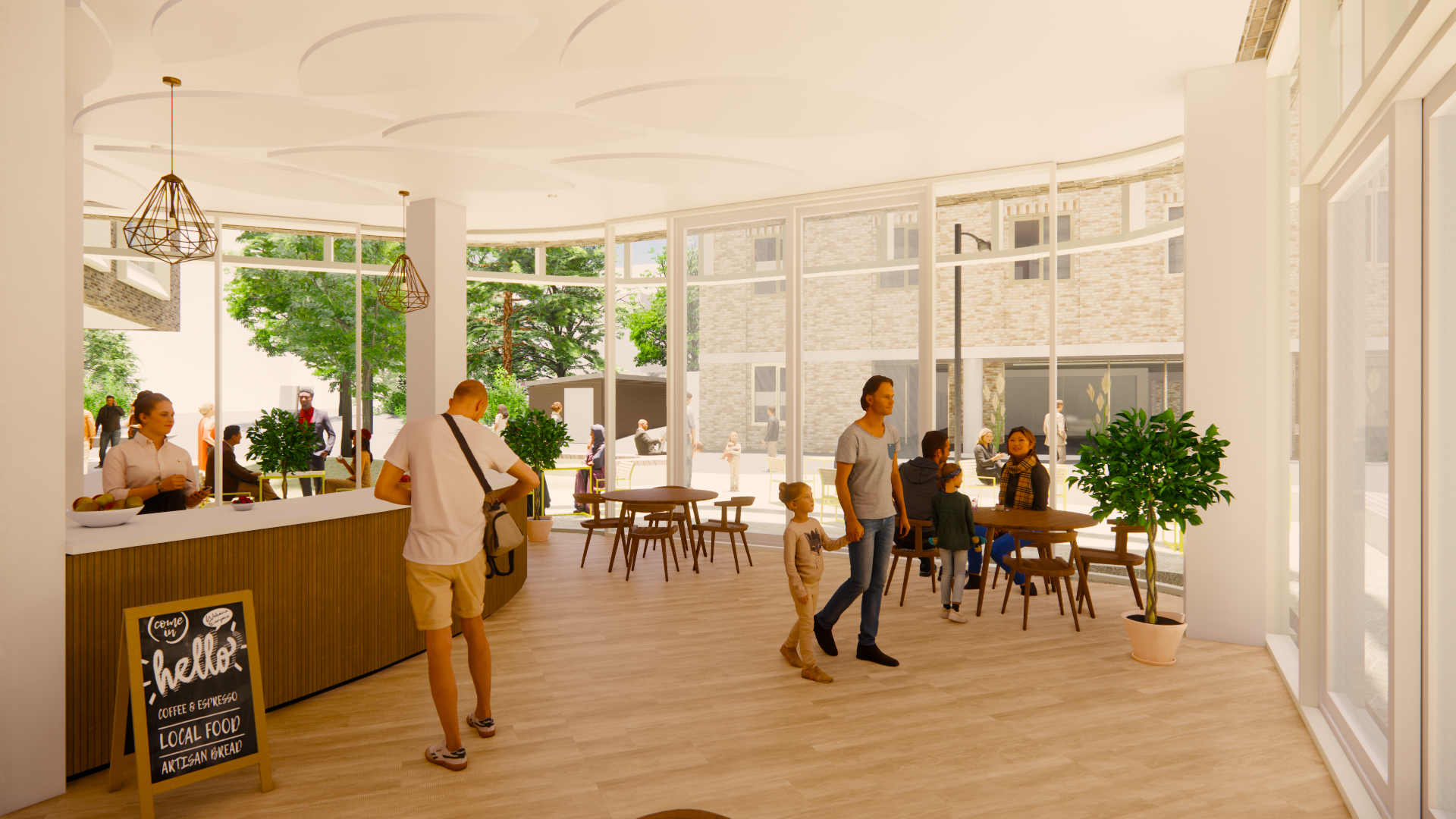
Five IoPPN research projects receive UKRI funding
A total of £4.4 million funding from the UK Research and Innovation (UKRI) Medical Research Council (MRC) has been awarded to research projects at the Institute of Psychiatry, Psychology & Neuroscience (IoPPN) to advance adolescent mental health and wellbeing research.

Three projects led by IoPPN researchers have been awarded UKRI MRC funding, with research ranging from understanding loneliness in students to analysing expressed emotion to enhance mental health research in adolescence.
Two further projects which will be co-led by IoPPN researchers have also received funding. The projects will start in November and will run for three years.
Dr Nicola Byrom
Dr Nicola Byrom’s project entitled ‘The time of their lives? Developing Concepts and Methods to Understand Loneliness in Students’ has been awarded £848K by the UKRI MRC to develop concepts and methods to understand loneliness in university students.
There are many reasons why university students may feel lonely. Working alongside students and young people, the researchers aim to make it easier to measure loneliness sensitively, developing new tools to analyse the links between loneliness, social connection, sense of belong and expectations.
The project will investigate how social contacts change as young people move to university and ask if these changes cause loneliness It will also test whether a sense of belonging helps understand loneliness.
“Loneliness in university students is a major concern. Attempts to address loneliness are hampered by insufficient conceptual understanding and a lack of relevant research tools. We are bringing together an interdisciplinary team to use qualitative and quantitative methods, supported by historical analysis with the aim to create a new and transferable conceptual framework for loneliness.”
Dr Nicola Byrom is a Senior Lecturer in Psychology at the IoPPN whose research interests lie within student mental health and learning theory. Dr Byrom founded Student Minds in 2009, with the ambition of changing the way we talk about mental health in Higher Education. Today Student Minds is the UK’s main student mental health charity and has been instrumental in developing a whole-university approach to mental health and implementing a University Mental Health Charter.
Professor Paola Dazzan
Professor Paola Dazzan has been awarded over £1.1 million by the UKRI MRC for her CELEBRATE project ‘Co-producing a framework of guiding principles for Engaging representative and diverse cohorts of young peopLE in Biological ReseArch in menTal hEalth’.
The project is co-led by researchers and young people from three different UK locations (London, Birmingham and Bradford). Together, and working with parents and teachers, the project will use co-production to develop a ‘Framework of Guiding Principles’ – a document that will tell researchers interested in studying adolescent biology and mental health how young people prefer to be approached about research, what makes them interested to stay involved, what roles they would like to play in the research team, and what benefits they would like to see from taking part.
“Receiving this award from the MRC is truly reflective of our study’s title. Participants are a crucial part of the research process, and this study hopes to grow our understanding of what engages and retains young people participating in research. Our project is inter-disciplinary, involving several IoPPN colleagues, working across three research sites, and including parents, teachers and, of course, young people themselves. We are aiming to produce a framework of guiding principles which we hope will become a useful reference for the next generation of researchers.”
IoPPN researchers, Professors Chiara Nosarti, Craig Morgan, Carmine Pariante, and Valeria Mondelli, will work with Professor Paola Dazzan on the project, alongside Professor Seeromanie Harding from the Faculty of Life Sciences & Medicine at King’s, and colleagues from the University of Birmingham, Bradford Teaching Hospital NHS Foundation Trust and Imperial College London.
Professor Paola Dazzan is Professor of Neurobiology of Psychosis and Vice Dean (International Affairs) at the IoPPN. Her main area of interest is the study of neurobiological risk factors for psychosis in the early illness stages, and in explaining the relationship between the brain, social and biological risk factors for psychosis across the lifespan – from pregnancy, through adolescence, to adulthood. Professor Dazzan is internationally known for her work on the relationship between neuroimaging and other biological measures in the initial stages of psychosis. Her work has been extensively published in high impact papers and she is among those named in the 2019, 2020, 2021 Highly Cited Researchers List which recognises influential researchers around the world. She is currently President Elect of the Schizophrenia International Research Society.
Dr Johnny Downs
Dr Johnny Downs’ project, ‘The automated coding of expressed emotion to enhance clinical and epidemiological mental health research in adolescence’ has been awarded £299K funding by the UKRI MRC to investigate how data on parental speech can provide an index of a child’s home environment and help profile their risk of developing, and recovering from, adolescent-onset mental health disorder.
We are delighted to have received this award from the MRC, and really grateful to the Psychiatric Research Trust for supporting our initial pilot work. This is a truly interdisciplinary project – bringing together young people, parents and experts in spoken language, affective processing, developmental psychopathology, epidemiology, science communication and ethics. We are really excited about the next two years, and ultimately developing a clear blueprint of what is required to build a secure digital platform that enables other research groups to rapidly code expression emotion in an accurate and cost-effective manner.
IoPPN researchers, Professor Helen Fisher, Dr Nicholas Cummings and Dr André Bitter will work with Dr Johnny Downs on the project, alongside Dr Christine Aicardi from the the Department of Global Health & Social Medicine at King’s, and colleagues from the University of Sheffield.
Dr Johnny Downs is an NIHR Clinician Scientist at the Department of Child & Adolescent Psychiatry and Child and Adolescent Lead at the Centre for Translational Informatics. His research focuses on the use of digital information for epidemiological studies, examining risks factors and outcomes for childhood neurodevelopmental and mental health disorders.
Dr Delia Fuhrmann
Dr Delia Fuhrmann is co-investigator on a project which has received £883,222 funding from the UKRI MRC. The project, ‘Capturing loneliness across youth: Co-production of a new developmentally sensitive scale’ is led by Professor Jennifer Lau from Queen Mary University of London and will see the development of a new questionnaire to measure youth loneliness.
I am so pleased that the UKRI have funded this project. Through discussions with young people we have heard again and again that loneliness is major concern from them. At the same time, we really know very little about how and why youth loneliness arises and how we can help young people manage feelings of loneliness. In order for us to better support young people, we first need better ways of measuring youth loneliness. The questionnaires we see used in practice tend to be very short (“How often do you feel lonely?”). This doesn’t allow us to capture the complex experiences young people have around loneliness. We hope to change this status-quo through this project.
Dr Fuhrmann continued: “Together with young people and our charity partners, we will develop a sensitive questionnaire that can capture the authentic experiences of young people. This will allow us to collect better data on youth loneliness, and ultimately help us contribute to prevention and intervention efforts.”
Dr Delia Fuhrmann is a Lecturer in Psychology at the IoPPN. She leads the Development and Environment Research Group, which focuses on understanding how environmental influences, such as adversity, shape the brain, cognition and mental health between childhood and adulthood. Her lab also develops new methods and models to study development.
Professor Edmund Sonuga-Barke
Professor Edmund Sonuga-Barke is co-investigator on the CREATE project, led by Professor Paul Cooke from the University of Leeds, which has received over £1 million funding from the UKRI MRC.
CREATE explores the best way to utilise the performing arts in adolescent mental health research to optimise the participation of young people while addressing persisting methodological barriers in the field. It has a special focus on the impact of childhood loneliness.
CREATE builds on the approaches to participation being used in RE-STAR (Regulating Emotions – STrengthening Adolescent Resilience) – a large programme, led by Professor Edmund Sonuga-Barke, which investigates emotion regulation in neurodivergent adolescents and its link to depression.
One important aim of CREATE is to construct a large resource hub for anyone working at the intersection of arts, science and youth voice, which will contain teaching tools, research methods and good practice guides to optimise the information we can gain from arts-based research.
Arts-based mental health research using creative practices like music, theatre, dance, drawing and poetry is enjoyed by many young people and can bring new insights and understanding about adolescent mental health in ways that traditional, often adult-led, research methods cannot. Through the CREATE project we hope to unlock the untapped potential to improve understanding of mental health by bringing the arts together with science and young people’s perspectives.
Professor Edmund Sonuga-Barke is Professor of Developmental Psychology, Psychiatry & Neuroscience at the IoPPN. Motivated by his own experience of growing up with learning difficulties, his research focuses on understanding the origins of neurodevelopmental differences, particularly variations in attention and impulse control (such as ADHD), and their impact on mental health. Professor Sonuga-Barke is a Fellow of the Academy of Medical Sciences (elected 2016) and The British Academy (elected 2018), and a Skou Professor at Aarhus University, Denmark (elected 2019). He is also the editor-in-chief of the Journal of Child Psychology & Psychiatry.
The King’s Maudsley Partnership
This funding from the UKRI MRC has been awarded to research projects at the IoPPN to advance adolescent mental health and wellbeing research. This is an example of some of the work that will happen within the King’s Maudsley Partnership for Children and Young People’s Mental Health.
The King’s Maudsley Partnership brings together leading academics at King’s IoPPN and specialist clinicians from the South London and Maudsley NHS Foundation Trust in a “bench to bedside” collaboration, supported by the Maudsley Charity. The unique partnership will transform child and adolescent mental health care by speeding up the time taken to bring research breakthroughs into clinical treatment.
The partnership will have its home at the £69m Pears Maudsley Centre for Children and Young People in Denmark Hill, set to open in 2024.
Categories
Follow Us
For the latest updates and news, follow us on our social channels.










Recent Comments